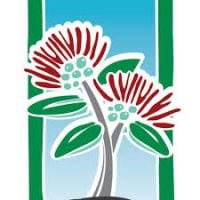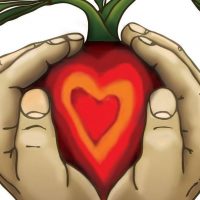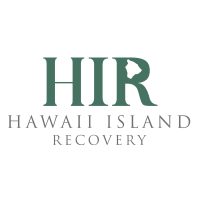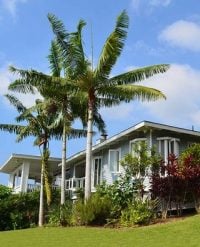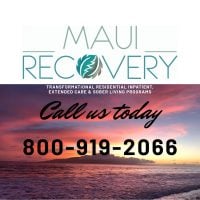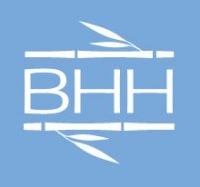Big Island Substance Abuse Council - Kohala Middle School
Drug Rehab Center in Kapaau, Hawaii
Big Island Substance Abuse Council - Kohala Middle School provides evidence-based addiction treatment services, resources, and support groups to help those affected by substance use disorders and reduce the stigma surrounding substance abuse in the community.
About Big Island Substance Abuse Council - Kohala Middle School in Hawaii
Big Island Substance Abuse Council - Kohala Middle School is an addiction treatment facility located in Kapaau, Hawaii. Founded in 1956, the center has been providing crucial support to individuals struggling with alcoholism, dual diagnosis, opioid addiction, and drug addiction for over six decades. The facility is accredited by the Substance Abuse and Mental Health Services Administration (SAMHSA), ensuring that they adhere to the highest standards of care. Additionally, they hold a state license, further demonstrating their commitment to excellence in service provision.
Big Island Substance Abuse Council - Kohala Middle School offers a range of vital services to assist individuals in their journey towards recovery. They provide aftercare support, recognizing the importance of continued assistance and guidance even after the initial treatment phase. The center offers drug rehab programs tailored to meet the specific needs of each individual, ensuring a personalized approach to recovery. They also provide outpatient levels of care, allowing individuals to receive the necessary treatment while still maintaining their daily responsibilities and routines. By offering these multifaceted services, Big Island Substance Abuse Council - Kohala Middle School aims to support individuals in their recovery journey and help them achieve long-term sobriety.
Genders
Ages
Modality
Additional
Accreditations
State License
SAMHSA
Conditions and Issues Treated
Opioid addiction has become a significant health problem in the United States. When a person’s life becomes unmanageable because of an opioid addiction, treatment can help them get sober. Treatment includes medical care and counseling.
“With so many people struggling with opioid addiction, we need more care and attention for those who want to quit. Opioid addicts often take opioids when they experience a painful injury – that’s how the cycle starts! When someone begins taking their medication differently than prescribed or takes an excessive amount of drugs, it means they’re hooked on drugs and in danger of overdosing.
The most successful way to beat this is through detoxing from these types treatments at Big Island Substance Abuse Council - Kohala Middle School in . Most facilities start by using medical support during the process while providing counseling services; rehabilitation comes later on after treatment has been completed successfully.
Levels of Care Offered
This center offers a variety of custom treatment tailored to individual recovery. Currently available are Aftercare Support, Drug Rehab, Outpatient, with additional therapies available as listed below.
Outpatient programs at Big Island Substance Abuse Council - Kohala Middle School, the Kapaau resident can live with their family while continuing with their job or studies. Treatment includes educating the patient on drug abuse, medications, and counseling sessions at the individual or group level. Outpatient treatment plans cover diagnosis, detoxification, management, and counseling. They are a popular option for those who have graduated from inpatient facilities.
Without aftercare support, addicts can easily relapse back into addiction. It is crucial to integrate the addict back into society. Aftercare support should take place after outpatient treatment has ended.
There are a few different types of aftercare support that patients can seek after completing an inpatient treatment program:
- 12 Step Self-help groups (AA, NA)
- Therapeutic communities,
- Long-term, structured sober living arrangements
- Halfway houses (residential treatment centers)
Many different support groups exist for addicts to seek help after treatment. Some are more effective than others, depending on the person’s addiction, background, and other factors.
Therapies & Programs
Individual therapy is a form of counseling where you meet with a trained professional one-on-one. Meeting with a therapist in this setting allows for a personal and trusting relationship to be built. This allows the patient to open up about sensitive or private issues they may not feel comfortable discussing in a group. Individual therapy helps identify the root causes of your addiction, which can help prevent relapse.
Couples therapy for drug addiction is a unique form of therapy that allows family members to work through the emotional issues of their loved one’s addiction together. Family members can support each other while learning how to cope with the addiction and encourage healthy changes. The two will work with a therapist to learn how the addiction affects themselves and the relationship.
Family therapy is often done alongside drug treatment to help addicts stay sober. The goal of family therapy for drug addiction is to create an environment where communication can happen without judgment, hostility, or blame. The therapist will sit with the family so they can learn how to communicate differently and provide new tools for dealing with emotions so that people don’t want to drink or do drugs. It’s important for families to focus on relapse prevention plans during treatment so that if the addict feels like they want to use again, they’ll know what steps they need to take together to prevent it from happening again in the future.
Group therapy sessions are another common addiction recovery service. These group sessions typically involve six to 12 addicts who meet regularly with a trained professional for support and guidance.
During these sessions, the group shares their experiences with one another and provides feedback that can help each member avoid relapse or overcome specific obstacles they are facing in their recovery process. With this type of support and guidance, addicts can feel like they are part of a community that understands their struggles and will help them get through the hard times.
Many people struggling with drug addiction have experienced some form of trauma in their lives. It is crucial that these individuals seek out professional help; otherwise, their drug abuse and addiction will likely continue.
Therapists and counselors at drug treatment centers employ several treatment programs to help people struggling with drug addiction, including trauma therapy. Trauma therapy helps people dealing with addiction by allowing them to confront the traumas of their past and move past them.
It is important to note that trauma therapy should not be confused with PTSD (post-traumatic stress disorder). Rather, it is used to treat the effects of trauma, which are often at the root of addiction.
Cognitive Behavioral Therapy (CBT) focuses on the underlying thoughts and behaviors that caused the problem of addiction in the first place and may cause a relapse. Negative feelings are common in drug abuse disorders, but they can lead to co-occurring disorders if not recognized. CBT involves strategies that help to change the behavior pattern by restructuring negative thoughts into positive ones. It helps to remove these feelings, and it provides long-term benefits. Also, CBT promotes self-awareness and self-control. It can be administered as a monotherapy or as part of combination therapy.
CBT can improve the patient’s mood, reduce drug cravings and boost success rates on treatment plans. Regular practice can help individuals handle negative attitudes, thoughts, and feelings without turning to drugs or alcohol. The core belief of Cognitive Behavioral Therapy (CBT) is that one’s moods, behaviors, and actions are all connected. Individuals can improve their quality of life using CBT. It helps addicts understand the patterns of thought and feelings that cause them to use drugs or alcohol and develop a healthy response.
It’s not as simple as quitting drinking or using drugs and expecting the hard part to be over. Many addicts in recovery have discovered that they need to improve skills such as time management, organization, communication, socialization, and self-esteem. Learning certain life skills can help those who are struggling with addiction.
Big Island Substance Abuse Council Associated Centers
Discover treatment facilities under the same provider.
- Big Island Substance Abuse Council - Kailua Kona in Kailua Kona, HI
- Big Island Substance Abuse Council - Ka Wahi Ola Hou in Hilo, HI
- Big Island Substance Abuse Council - Hilo in Hilo, HI
- Big Island Substance Abuse Council - Connections in Hilo, HI
- Big Island Substance Abuse Council - Laukona House in Hilo, HI
Learn More About Big Island Substance Abuse Council Centers
Additional Details
Specifics, location, and helpful extra information.
Kapaau, Hawaii 96755 Phone Number(808) 969-9994 Meta DetailsUpdated November 25, 2023
Staff Verified
Big Island Substance Abuse Council - Kohala Middle School Patient Reviews
There are no reviews yet. Be the first one to write one.
Kapaau, Hawaii Addiction Information
Hawaii has one of the highest rates of drug abuse in the nation. Methamphetamines and marijuana are the most common drugs involved in drug-related crimes in Hawaii. The state loses $500 million every year due to methamphetamine abuse, according to the Hawaii Meth Project. More than 1 million prescriptions for prescription drugs are given out every year.
Kapaau ranks among the top 20% of U.S. counties with the highest rates of illicit drug use. More than 8% of the population in Kapaau, HI, is addicted to drugs or alcohol. In 2016, there were 861 drug-related arrests for possession of marijuana. If you are looking for the best drug treatment facility in Kapaau, Hawaii, you can start by researching online. Some people may also choose to seek treatment abroad.
Treatment in Nearby Cities
- Pahala, HI (74.4 mi.)
- Waianae, HI (174.7 mi.)
- Kahului, HI (62.6 mi.)
- Honokaa, HI (24.3 mi.)
- Hakalau, HI (49.8 mi.)
Centers near Big Island Substance Abuse Council - Kohala Middle School
The facility name, logo and brand are the property and registered trademarks of Big Island Substance Abuse Council - Kohala Middle School, and are being used for identification and informational purposes only. Use of these names, logos and brands shall not imply endorsement. RehabNow.org is not affiliated with or sponsored by Big Island Substance Abuse Council - Kohala Middle School.
